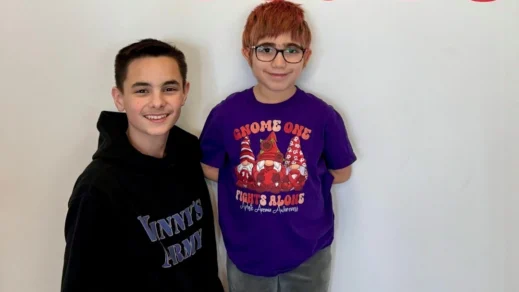Research Area
We are dedicated to eliminating two of the world’s most neglected tropical diseases: onchocerciasis (river blindness) and lymphatic filariasis (elephantiasis). These debilitating conditions, caused by the parasitic worms Onchocerca volvulus and Brugia malayi, respectively, continue to affect millions of people worldwide.
Our research focuses on the molecular and cellular biology of filarial parasites and their complex interactions with the human immune system. By uncovering the pathways essential for parasite development, survival, and immune evasion, we aim to identify therapeutic vulnerabilities that can be targeted to disrupt infection and transmission—ultimately supporting global elimination efforts.
In addition, we investigate the immunomodulatory properties of parasite-derived proteins, particularly those O. volvulus uses to manipulate host immune responses to persist in the human host. These insights inform the development of immune-based interventions.
Our work spans fundamental discovery to translational science, with the overarching goal of developing effective vaccines, novel therapeutics, and immune-modulating tools to improve global health.
Advancing Solutions for Neglected Tropical Diseases
- Vaccine Discovery and Development
Our lab has identified over 30 larval antigens from Onchocerca volvulus, with seven demonstrating protective efficacy in small animal models. Among these, two leading candidates—Ov-103 and Ov-RAL-2—have shown strong protection in two small-animal models and in cattle naturally infected with O. ochengi, a close relative of O. volvulus.
These antigens have been formulated into an adjuvanted Ov-103/Ov-RAL-2 fusion protein, which is now progressing through the TOVAx™ clinical development plan. This includes:
- cGMP manufacturing of the vaccine antigen for human clinical trials
- Verification of vaccine potency in small-animal models
- GLP-compliant toxicology studies
- A first-in-human safety and immunogenicity trial in healthy volunteers
Learn more at http://www.riverblindnessvaccinetova.org
- Drug Discovery and Therapeutics
Our lab is actively engaged in collaborative drug discovery efforts aimed at combating filarial diseases. These efforts include both the repurposing of safe, existing drugs and the identification of novel larvicidal and macrofilaricidal compounds.
Using a multidisciplinary approach that integrates molecular biology, medicinal chemistry, and preclinical testing, we aim to accelerate the development of the next generation antifilarial larvicidal and adulticidal drugs with unique mechanisms of action.
We are currently also testing optimized compounds in an infected gerbil model and exploring combinatory therapies to evaluate potential synergistic effects. Our goal is to improve treatment outcomes and expand therapeutic options for patients worldwide.
Adjuvant Research
Our research investigates the intrinsic immunostimulatory properties of a parasite-derived protein, rASP-1, and its role as a TRIF-dependent innate adjuvant. We study how rASP-1 enhances immune responses when formulated with various vaccine platforms, including:
- Soluble vaccine antigens
- Recombinant viral vaccine antigens
- Commercial inactivated vaccines (e.g., influenza)
- mRNA vaccines (e.g., COVID-19)
We also examine how rASP-1 synergistically amplifies early innate immune signaling when combined with other innate adjuvants—R848 (a TLR7/8 agonist) and cGAMP (a STING agonist). These combinations go beyond additive effects, shaping both the magnitude and quality of the resulting immune responses.
Specifically, we aim to understand the mechanisms by which these combinations broaden dendritic cell responsiveness and interaction with the adaptive immunity:
- rASP-1 + R848 promotes a Th1-skewed transcriptional profile, potentially benefiting vaccines that require strong Th1/Th17 responses.
- rASP-1 + cGAMP induces a more tempered, IFN-driven antiviral response with enhanced regulatory signaling, making it suitable for antiviral vaccines or immunocompromised populations.
This work expands the potential applications of combinatory adjuvants across diverse vaccine platforms and has significant implications for the prevention of infectious diseases.
Immunomodulation & Immunotherapy for Autoimmune Diseases
We are also investigating the tolerogenic potential of three secreted O. volvulus proteins. These proteins suppress IFN-γ production in human immune cells and may serve as immunotherapeutic adjuvants for autoimmune diseases such as Type 1 Diabetes, where IFN-γ plays a key pathological role.
Funding Support
- NIH U01 AI160421 Lustigman (PI) 08/2021– 05/2026 “Restoring age-dependent vaccine unresponsiveness by a novel ASP-1 adjuvant combination”
- NIH R01 AI174587 Lustigman/Makedonka/Janetka (Multi-PI) 09/2023 – 08/2027 “Innovative therapeutic strategies to support elimination of river blindness”
- NIH R43 AI181294 Romet-Lemonne/Lustigman (Co-PI) 04/2024- 03/2027 “Orally available NOD2 agonist, HPX-612, for the treatment of visceral leishmaniasis”
Education and Training
Postdoctoral Institution
- The Walter and Eliza Hall Institute of Medical Research, Melbourne, Australia
Degree Institution
BSc, MSc, PhD; Hebrew University of Jerusalem, Israel
Sara Lustigman, PhD, Researcher Profile PDF
Patents
- 2010, 2015 Adjuvancy and immune potentiating properties of natural products of Onchocerca volvulus: MacDonald AJ and Lustigman S (U.S. Patent No. US 7,700,120 B2 and US 9,017,699 B2)
- 2025 Biomarkers and immunogenic compositions for filarial parasites: Sara Lustigman, Thomas B. Nutman, Sasisekhar Bennuru (U.S. Patent No. US 12,251,432 and US 12,311,016)
Publications
Full List of Publications



